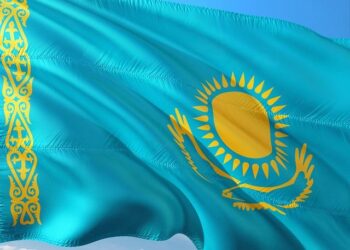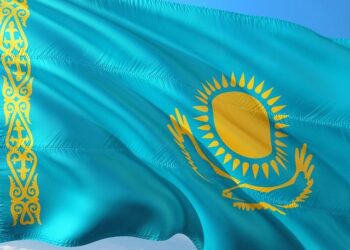Kazakhstan and the United States have taken a significant step toward strengthening their strategic partnership with the signing of a Memorandum of Understanding (MOU) focused on critical minerals. The agreement, officially announced this week, aims to enhance cooperation in the exploration, development, and sustainable supply of essential minerals crucial for advanced technologies and clean energy. As global demand for critical minerals continues to rise, this collaboration underscores both nations’ commitment to securing stable supply chains and advancing their economic and environmental objectives.
Kazakhstan and US Forge Strategic Alliance to Secure Critical Minerals Supply
In a significant move aimed at bolstering global supply chains, Kazakhstan and the United States have formalized a Memorandum of Understanding (MOU) focused on securing critical minerals essential for advanced technologies and clean energy initiatives. This partnership targets enhanced exploration, sustainable mining practices, and the development of resilient supply networks to reduce dependency on unstable markets. With Kazakhstan’s vast reserves of rare earth elements and strategic minerals, the alliance promises to be a cornerstone in strengthening economic and security ties between the two nations.
The MOU outlines collaborative efforts in several key areas, including:
- Joint research and development programs to improve extraction technologies.
- Environmental safeguarding measures to ensure mining operations meet international standards.
- Investment in infrastructure to streamline mineral processing and export capabilities.
- Capacity building and workforce training to foster local expertise.
| Critical Mineral | Kazakhstan Reserves (Estimated) | US Demand Growth (2025-2030) |
|---|---|---|
| Rare Earth Elements | 500,000 tons | +35% |
| Cobalt | 120,000 tons | +28% |
| Lithium | 80,000 tons | +42% |
| Nickel | 210,000 tons | +30% |
Implications for Global Mining Markets and Supply Chain Resilience
The recent Memorandum of Understanding (MOU) between Kazakhstan and the United States marks a pivotal development in enhancing the stability of global mining markets. By fostering collaboration on critical mineral extraction and processing, the agreement aims to diversify supply sources and reduce dependency on traditional exporters. This not only bolsters the availability of essential raw materials for high-tech and renewable energy sectors but also introduces a strategic partnership that could influence pricing dynamics and future investment flows in the mining industry.
Key benefits emerging from this cooperation include:
- Strengthened supply chain resilience: Joint efforts in exploration and refining capacity will mitigate risks associated with geopolitical tensions and trade disruptions.
- Technology exchange and innovation: Shared expertise promises to accelerate advancements in sustainable mining practices and efficient resource utilization.
- Market stabilization: Improved coordination may lead to more predictable commodity availability, supporting manufacturers and end-users worldwide.
| Critical Mineral | Kazakhstan’s Role | US Strategic Interest |
|---|---|---|
| Rare Earth Elements | Emerging supplier with untapped deposits | Reduce dependence on Asian markets |
| Uranium | Major global producer | Support nuclear energy development |
| Cobalt | Growing mining operations | Secure battery raw materials |
Recommendations for Enhancing Bilateral Cooperation and Industry Transparency
Strengthening bilateral cooperation between Kazakhstan and the United States demands a strategic framework that prioritizes clear communication channels and joint oversight mechanisms. Establishing regular intergovernmental forums will enable both parties to address emerging challenges and share technological innovations in real-time. Additionally, fostering partnerships between industry stakeholders, academic institutions, and regulatory bodies can enhance knowledge exchange and drive sustainable practices across the critical minerals supply chain.
To ensure greater transparency in the mining and processing sectors, it is essential to adopt standardized reporting protocols that align with international best practices. Key recommendations include:
- Implementation of a centralized digital registry for tracking mineral production and export data
- Mandatory environmental compliance disclosures to reinforce sustainable mining operations
- Regular third-party audits to validate the integrity of supply chain information
- Open-access publication of bilateral projects’ progress and impact assessments
| Key Initiative | Expected Outcome |
|---|---|
| Bilateral Knowledge Exchange Programs | Accelerated technology transfer and innovation |
| Supply Chain Transparency Platform | Improved investment confidence and regulatory compliance |
| Unified Environmental Standards | Reduced ecological footprint of mining activities |
Future Outlook
The signing of the memorandum of understanding between Kazakhstan and the United States marks a significant step toward strengthening bilateral cooperation in the critical minerals sector. As both nations seek to secure stable and sustainable supply chains, this partnership is poised to play a pivotal role in supporting global technological and energy transitions. Moving forward, the collaboration could unlock new opportunities for investment, innovation, and strategic resource development, highlighting the growing importance of critical minerals in geopolitics and economic growth.
















